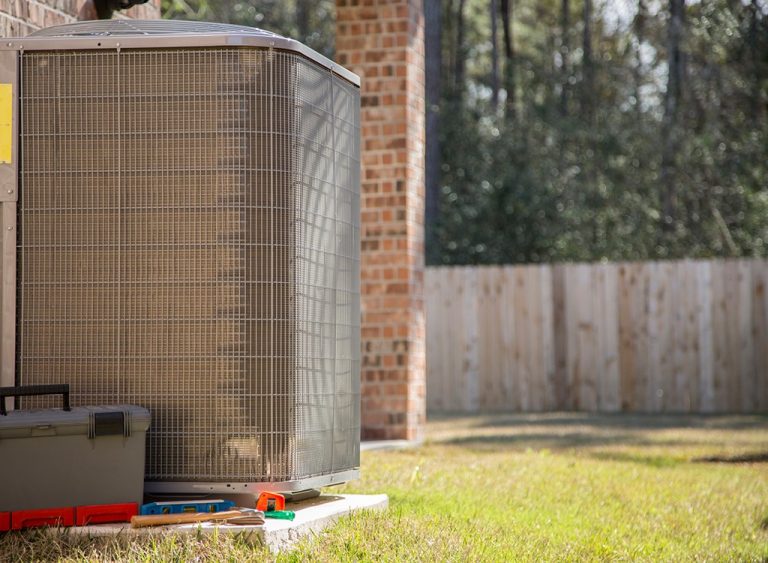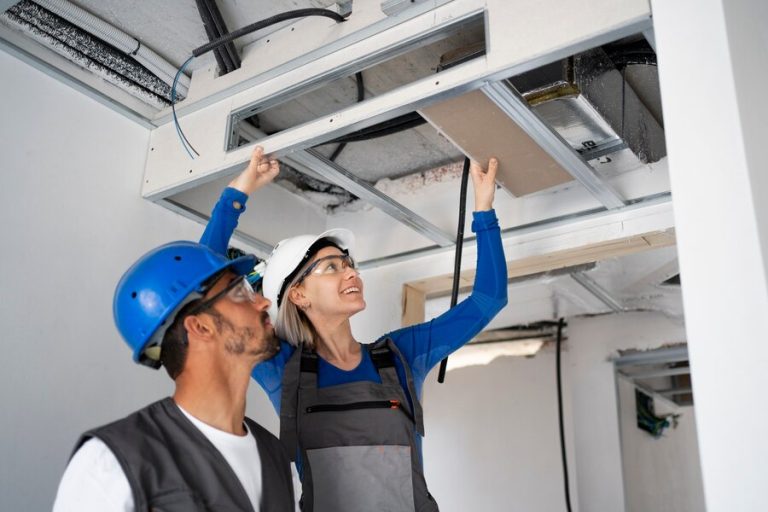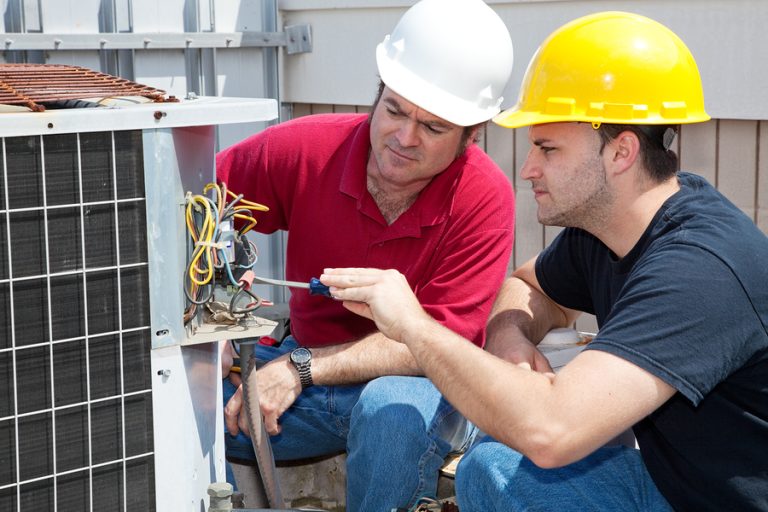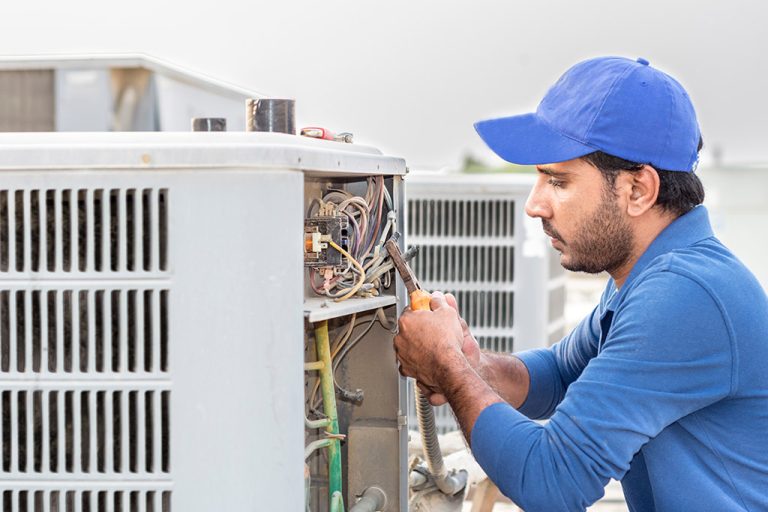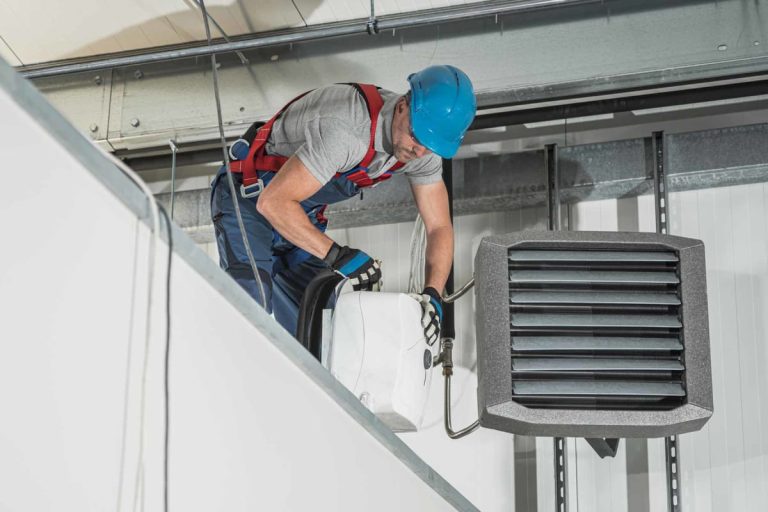Commercial HVAC Contractors Near Me Finding the Right Fit
Commercial HVAC contractors near me are crucial for maintaining optimal comfort and efficiency in any business setting. From intricate chillers to powerful boilers, these specialists handle the complex systems that keep your operations running smoothly. Understanding their services, evaluating their expertise, and finding the right local contractor are vital for any business owner.
This guide explores the essential steps in selecting the ideal commercial HVAC contractor. We’ll delve into identifying their services, assessing their qualifications, locating nearby experts, and ultimately choosing the best fit for your specific needs.
Defining Local HVAC Contractors

Source: slideserve.com
Local commercial HVAC contractors are essential for maintaining and optimizing the performance of heating, ventilation, and air conditioning systems in businesses, offices, and other commercial properties. They provide expert services ranging from routine maintenance to complex system installations and repairs. Understanding their capabilities is crucial for any business owner or facility manager.
Commercial HVAC systems are significantly more complex than residential systems. They require specialized knowledge and equipment to ensure optimal efficiency, safety, and longevity. This expertise is vital in maintaining a comfortable and productive work environment, preventing costly downtime, and adhering to building codes and regulations.
Services Offered by Commercial HVAC Contractors
Commercial HVAC contractors provide a wide array of services tailored to the specific needs of diverse commercial spaces. These services extend beyond basic repairs, encompassing installation, maintenance, and specialized solutions for various commercial HVAC systems.
- Installation: New HVAC systems, often tailored to specific building requirements, are a key service. This includes the installation of equipment like chillers, boilers, air handlers, and related ductwork. Careful planning and execution are critical for ensuring proper system integration and adherence to building codes.
- Repair: Commercial HVAC systems, like complex machinery, can encounter malfunctions. Contractors provide comprehensive repair services, diagnosing issues, replacing parts, and restoring systems to peak performance. This involves troubleshooting electrical components, mechanical parts, and refrigerant leaks.
- Maintenance: Preventative maintenance is crucial for maintaining the lifespan and efficiency of commercial HVAC systems. Contractors offer scheduled maintenance plans, including inspections, cleaning, and component lubrication to prevent breakdowns and ensure optimal system performance. Regular maintenance reduces the risk of costly repairs and system failure nd contributes to consistent comfort levels.
Types of Commercial HVAC Systems
Commercial HVAC systems are diverse, with specific equipment catering to different building types and needs.
- Chillers: These are essential components in cooling systems, often found in large buildings like offices and warehouses. They regulate the temperature of water circulated through a building’s cooling system.
- Boilers: Boilers are the heart of heating systems in commercial buildings. They generate steam or hot water, distributing heat throughout the building. Different types of boilers exist, each with specific operating parameters.
- Air Handlers: These components play a central role in distributing conditioned air throughout the building. They combine heating and cooling functions and are critical for maintaining consistent indoor temperatures.
Specializations Within Commercial HVAC
Commercial HVAC contractors often specialize in specific areas of expertise to address the diverse needs of commercial clients.
- Refrigeration: A crucial specialization, particularly for businesses using refrigeration equipment, such as restaurants, grocery stores, and pharmaceutical facilities. These contractors are skilled in handling refrigerants and maintaining complex refrigeration systems.
- Ventilation: Ensuring adequate airflow and removing pollutants is essential in commercial settings. Ventilation specialists are proficient in designing and installing ventilation systems for various applications, considering factors like air quality and safety regulations.
Common Services Offered
The table below articulates the typical services provided by a commercial HVAC contractor.
| Service Category | Specific Services |
|---|---|
| Installation | New HVAC system installation, Ductwork installation, Rooftop unit installation, etc. |
| Repair | HVAC system repair, Troubleshooting, Component replacement, Leak detection, etc. |
| Maintenance | Preventative maintenance plans, HVAC system inspections, Filter replacement, etc. |
| Specializations | Refrigeration, Ventilation, Energy efficiency audits, etc. |
Identifying Needs and Requirements
Choosing the right commercial HVAC contractor is crucial for maintaining optimal building performance and minimizing downtime. Selecting a qualified and reliable contractor ensures efficient system operation, cost-effectiveness, and adherence to safety standards. This process requires careful consideration of various factors.
Careful evaluation of potential contractors is essential to avoid costly mistakes and ensure a long-term partnership. The process involves assessing experience, certifications, licensing, insurance, and reviews, all of which contribute to a reliable and trustworthy contractor. This section details these key considerations.
Factors Influencing Contractor Selection
Several factors significantly impact the choice of a commercial HVAC contractor. These include the contractor’s experience, certifications, licensing, insurance, and customer reviews. Understanding these factors ensures a well-informed decision, leading to a successful and lasting partnership.
Important Factors to Consider
A thorough evaluation of potential commercial HVAC contractors requires careful consideration of several key elements. These elements encompass technical expertise, legal compliance, and customer satisfaction.
- Experience: Assessing a contractor’s years of experience in commercial HVAC work is vital. Extensive experience demonstrates a contractor’s proficiency in handling complex projects and troubleshooting diverse HVAC systems. Contractors with experience in similar building types or industries to yours can often provide more tailored solutions.
- Certifications and Accreditations: Relevant certifications and accreditations, such as those from reputable industry organizations, highlight a contractor’s commitment to maintaining high standards and staying updated with the latest technologies. These certifications often indicate specialized knowledge and adherence to best practices.
- Licensing and Permits: Ensuring the contractor holds valid licenses and permits is paramount. This verifies their legal authorization to perform HVAC work within the specific jurisdiction. This step is critical to avoid legal issues and ensure compliance with local regulations.
- Insurance Coverage: Thorough verification of liability and workers’ compensation insurance protects both the building owner and the contractor. This coverage safeguards against potential risks and financial liabilities.
- Customer Reviews and Ratings: Gathering information from past clients through online reviews and ratings provides valuable insights into a contractor’s reliability, responsiveness, and overall performance. Review sites often offer a snapshot of customer experiences, from project completion to after-sales support.
Significance of Experience and Certifications
Experience in commercial HVAC work provides contractors with a deep understanding of complex systems and troubleshooting techniques. This practical knowledge allows them to address various challenges effectively. Certifications further demonstrate a contractor’s expertise and commitment to quality.
Importance of Checking for Licenses and Insurance
Verifying licenses and insurance ensures compliance with local regulations and protects against potential financial risks. This critical step protects both the building owner and the contractor. It also demonstrates the contractor’s commitment to legal and safety standards.
Criteria for Evaluating Contractor Reliability
Evaluating contractor reliability involves a multi-faceted approach, considering factors such as experience, certifications, licensing, insurance, and customer feedback. This comprehensive evaluation helps to identify reputable and trustworthy contractors.
| Criteria | Description | Weighting |
|---|---|---|
| Experience | Years of experience in commercial HVAC | 30% |
| Certifications | Relevant certifications and accreditations | 20% |
| Licensing | Valid licenses and permits | 15% |
| Insurance | Liability and workers’ compensation insurance | 15% |
| Reviews | Customer reviews and ratings | 20% |
Locating Contractors in the Area
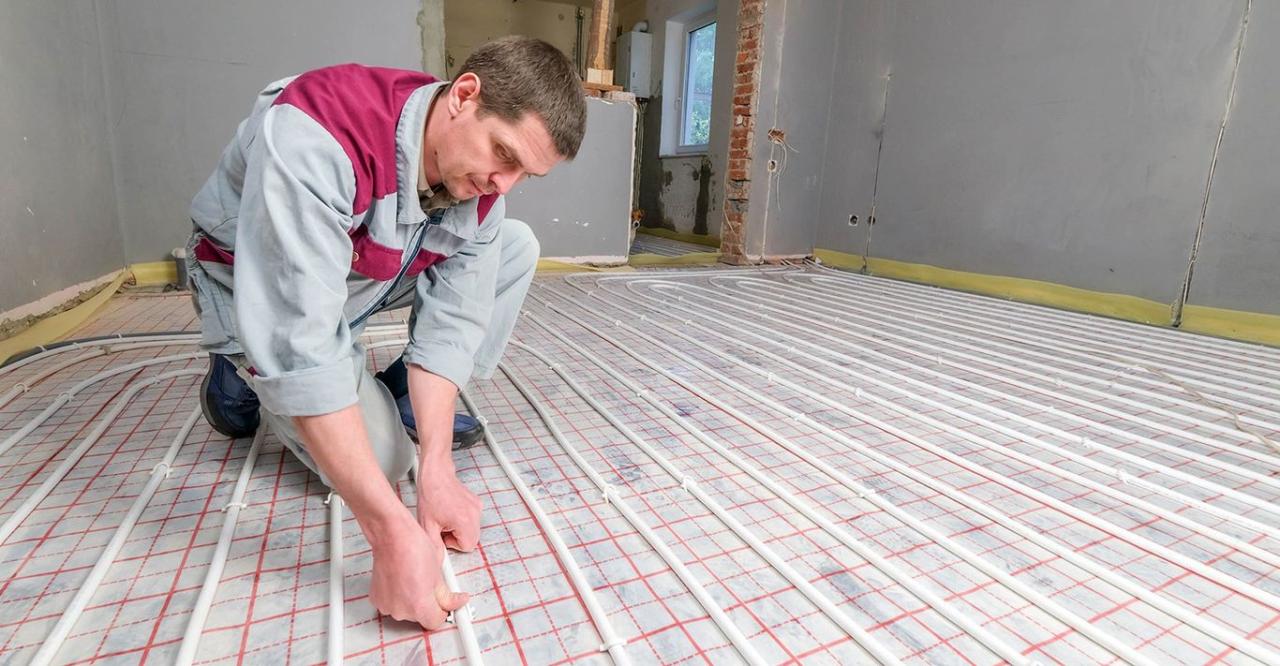
Source: thumbtack.com
Finding the right commercial HVAC contractor near you is crucial for efficient and cost-effective service. This process involves several key steps, beginning with identifying reliable sources and narrowing your search to the most suitable candidates within your geographical area. Careful consideration of these factors will lead to a smooth and successful project.
Various Methods for Finding Contractors
Locating qualified commercial HVAC contractors involves employing a range of methods. Direct networking, leveraging online resources, and utilizing local business directories are all effective strategies. Furthermore, checking online reviews and seeking recommendations from colleagues or industry peers can prove invaluable. By combining these approaches, you can build a strong foundation for finding the right fit.
Online Resources for Locating Contractors
Online platforms provide a convenient and comprehensive way to discover commercial HVAC contractors. These platforms often aggregate listings, allowing for easy comparison and selection. The wide reach of online resources also allows you to explore a broader spectrum of potential contractors beyond your immediate geographic area.
- Online Directories: Industry-specific directories often list contractors with detailed profiles, including certifications, experience, and service areas. These directories are curated to help businesses find the best-suited providers in the industry.
- Search Engines: Using search engines like Google or Bing, coupled with relevant s (e.g., “commercial HVAC contractors near me,” “HVAC maintenance contractors”), allows for quick identification of local businesses. By refining your search criteria, you can quickly filter down to contractors offering the specific services you require.
- Contractor Websites: Many commercial HVAC contractors maintain their websites. These websites typically include information about their services, experience, and geographic coverage. This direct approach offers a deeper understanding of the contractor’s capabilities.
- Social Media: Social media platforms can be valuable for discovering commercial HVAC contractors. Look for contractor pages showcasing their work, client testimonials, and contact information. This method can also provide insight into their company culture and values.
Using Online Search Engines to Find Local Contractors
Search engines offer a powerful tool for locating local contractors. By using specific s, you can effectively filter results to match your requirements. This approach ensures that the contractors displayed are relevant to your needs and geographical area. For example, searching for “commercial HVAC contractors near me” will provide a list of potential candidates within a specific radius. Further refining the search with additional s, like “emergency repair” or “HVAC maintenance,” can further narrow the field to those offering specific services.
Tips for Using Online Directories to Find Contractors
Online directories offer a curated list of HVAC contractors, allowing you to quickly assess their profiles and qualifications. A thorough review of listed credentials and certifications is important. Consider factors like years of experience, relevant certifications, and client testimonials. Reading reviews provides insights into the contractor’s reliability and work quality.
Considering Geographical Proximity
Geographical proximity is a crucial factor in selecting a commercial HVAC contractor. Responsiveness and service speed are essential considerations for timely interventions and efficient maintenance. Locating contractors within a manageable distance ensures swift response times in case of emergencies. Furthermore, traveling time and costs can vary significantly between contractors. The choice of contractor should factor in the added costs and time associated with distance.
Using Online Mapping Tools to Locate Contractors
Online mapping tools provide a visual representation of commercial HVAC contractors’ locations. These tools enable a clear visualization of nearby contractors. They allow for the rapid identification of contractors within a specific radius of your business, which is a valuable asset for streamlining the selection process.
Table of Online Resources
| Resource | Description |
|---|---|
| Online Directories | Industry-specific directories providing detailed contractor profiles. |
| Search Engines | Use general search engines (Google, Bing) to identify local contractors. |
| Contractor Websites | Company websites showcase services, experience, and service areas. |
| Social Media | Contractor social media pages for insights into company culture and work. |
Evaluating Contractor Proposals
Getting multiple bids from HVAC contractors is crucial for securing the best possible deal. Thorough evaluation ensures you select the right contractor for your specific needs and budget. This process involves careful review of proposals, comparing key factors, and asking clarifying questions.
A well-structured proposal provides a clear picture of the contractor’s understanding of your project, their proposed approach, and their pricing. It’s essential to scrutinize each element to make an informed decision.
Requesting Proposals from Contractors
Carefully outlining your needs and requirements is the first step. Communicate your project details, including the scope of work, desired features, and any specific preferences. This information helps contractors prepare accurate and relevant proposals. Clearly define the project’s geographic location, specific needs, and desired outcomes. A detailed description of the project, including existing conditions and desired outcomes, aids contractors in creating accurate and tailored proposals.
Essential Elements of a Contractor’s Proposal
A comprehensive proposal includes essential elements for a clear understanding of the contractor’s approach and pricing. These elements form the basis for a sound comparison among potential contractors. These key components enable a detailed comparison of proposed solutions, ensuring you select the most suitable option.
Detailed Breakdown of Proposal Information
A well-structured proposal should detail the project scope, timeline, personnel involved, pricing, and payment terms. The scope should clearly define the tasks and deliverables, providing a shared understanding of the project. A detailed timeline should include key milestones and completion dates, ensuring the project is managed efficiently. The personnel section should identify the key personnel involved in the project and their relevant expertise. A transparent pricing breakdown should itemize all costs, materials, and labor, including any associated fees. Payment terms should specify the payment schedule and method, ensuring clarity and accountability.
Comparison of Proposal Types
Contractors may offer written or verbal proposals. Written proposals provide a detailed, documented record of the project scope, timeline, personnel, pricing, and payment terms. Verbal proposals, while less formal, can offer a quicker initial assessment. A written proposal, while potentially more time-consuming for the contractor, offers a higher degree of clarity and accountability for both parties. It is important to note that while verbal proposals may be more convenient, they lack the formal documentation and detail that a written proposal provides.
Important Questions to Ask Potential Contractors
Clarifying questions helps gauge a contractor’s understanding of your needs and their ability to deliver a quality project. Questions about experience, past projects, and warranties are important to ask. Inquiring about the contractor’s experience with similar projects and their ability to handle potential challenges will help assess their competence. Seeking clarification on warranty provisions and service guarantees is crucial. Asking about their safety protocols and certifications will help assess their commitment to safety and compliance.
Clearly Defined Scope of Work, Commercial HVAC contractors near me
A clearly defined scope of work is crucial to avoid misunderstandings and disputes later. It should include all tasks, materials, and deliverables. A clearly defined scope prevents scope creep, potential disputes, and cost overruns. This comprehensive definition ensures that all parties are on the same page regarding the project’s boundaries.
Organizing Contractor Proposals
This table helps structure the information for a comparative analysis of contractor proposals.
| Proposal Element | Description |
|---|---|
| Project Scope | Detailed description of the project, including all tasks, materials, and deliverables. |
| Timeline | Project completion timeline, outlining key milestones and deadlines. |
| Personnel | Team members involved in the project and their relevant expertise. |
| Pricing | Detailed cost breakdown, including materials, labor, and associated fees. |
| Payment Terms | Payment schedule and method, ensuring clarity and accountability. |
Choosing the Right Contractor: Commercial HVAC Contractors Near Me
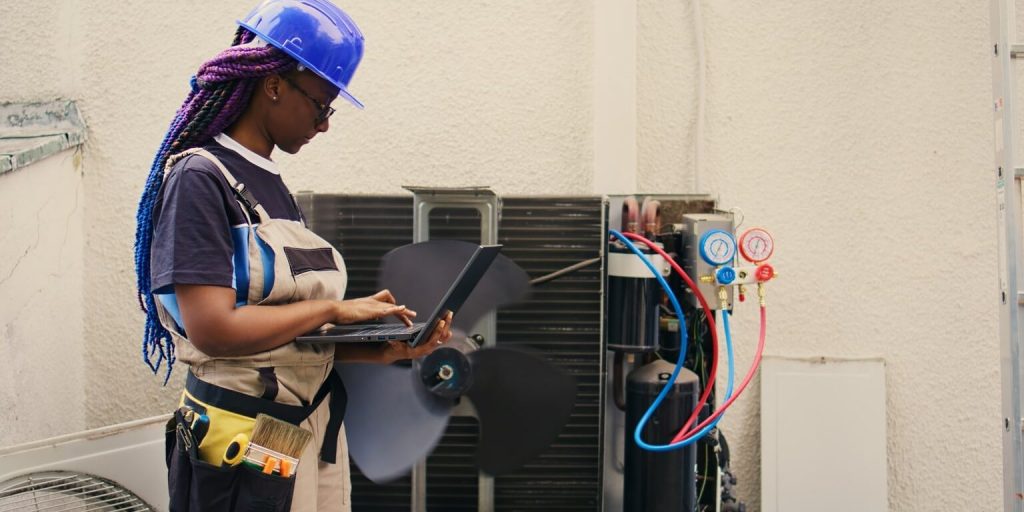
Selecting the ideal HVAC contractor for your needs requires a meticulous and structured approach. Carefully evaluating potential contractors ensures a successful installation, maintenance, or repair project, minimizing future issues and maximizing your investment. This process involves assessing various factors beyond just price to guarantee a reliable and competent partner.
Thorough evaluation of contractors is critical. Choosing the wrong contractor can lead to costly errors, inefficient work, and even safety hazards. By taking a proactive and systematic approach, you can significantly reduce the risk of these issues and ensure a positive outcome. This involves a careful assessment of their experience, reputation, and capabilities.
Evaluating Contractor Proposals
Before making a final decision, carefully review all submitted proposals. Each proposal should be evaluated against a consistent set of criteria to ensure a fair and comprehensive comparison. A structured approach ensures that all aspects are considered.
| Criteria | Description | Weighting (Example) |
|---|---|---|
| Price | Total cost of the project, including materials and labor. | 30% |
| Experience | Number of years in business, relevant certifications, and successful project history. | 25% |
| Reputation | Customer reviews, testimonials, and industry recognition. | 20% |
| Warranty | Length and coverage of the warranty offered on parts and labor. | 15% |
| Guarantees | Specific assurances regarding project completion and satisfaction. | 10% |
This table provides a structured template for evaluating contractor proposals, allowing for a balanced comparison across key factors. Adjust the weighting based on your specific priorities and project requirements.
Considering Contractor Reputation
A contractor’s reputation is a crucial factor in selecting the right partner. Positive reviews and testimonials from previous clients offer valuable insights into their work ethic, communication skills, and overall reliability. Word-of-mouth recommendations are often a strong indicator of a contractor’s trustworthiness. Checking online review platforms like Yelp, Google My Business, and industry-specific review sites is highly recommended.
Reviewing Contractor Portfolios
Contractor portfolios provide a visual representation of past projects. Reviewing these portfolios offers a direct look at their capabilities and past work, helping you assess their style, quality of work, and the range of services they provide. Look for examples of projects similar to yours to gauge their proficiency in tackling comparable challenges.
Verifying References from Previous Clients
Contacting previous clients is vital for gaining a more comprehensive understanding of the contractor’s performance. Ask about their experiences with the contractor’s communication, project timelines, quality of work, and overall satisfaction. Thorough communication with previous clients can offer insights that are often absent from online reviews. This personal touch helps gauge the contractor’s reliability and competence.
Structured Evaluation Process
A structured evaluation process streamlines the selection process, ensuring that all potential contractors are assessed against a consistent set of criteria. Create a checklist with essential criteria and assign a numerical score for each aspect. This organized approach will assist in making a well-informed decision.
Conclusion
Choosing the right commercial HVAC contractor near you is a significant decision, impacting both operational efficiency and long-term costs. By understanding the services offered, evaluating contractors based on experience, certifications, and reliability, and carefully considering proposals, you can ensure a smooth and successful installation, repair, or maintenance process. This comprehensive approach guarantees optimal results and sets the stage for a strong working relationship with your chosen contractor.
